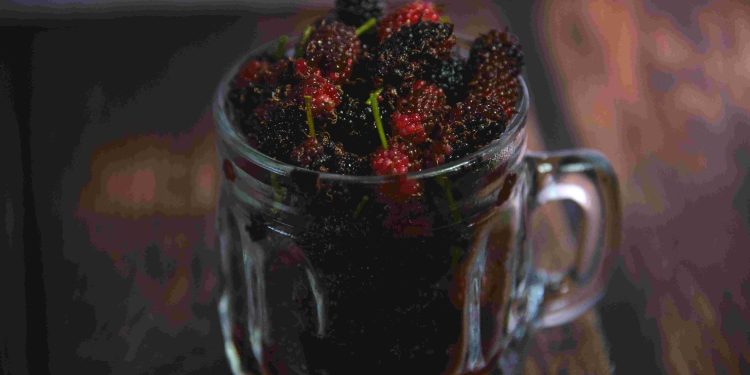Easy Recipe Recommendations for Beginners
Cooking is not just an act; it’s a declaration of self-sufficiency.
Imagine the empowerment of turning raw ingredients into a nourishing meal. Yet, for many beginners, the kitchen feels like uncharted territory. The good news? Cooking doesn’t have to be intimidating. Through trial, error, and perseverance, it becomes as intuitive as riding a bike—once frightening but later second nature.
Take my own experience, for instance. When I first moved out on my own, my culinary expertise didn’t extend beyond making instant noodles. I came from a family where meals were lovingly prepared, yet I had no idea how to replicate what I’d seen growing up. One evening, in a fit of stubborn determination, I decided to make a pasta dish from scratch. After hours of fumbling with raw tomatoes for sauce and overcooking pasta, my creation was barely edible. However, the satisfaction of attempting to cook was unmatched. From there, I realized that cooking wasn’t just about the food—it was about fostering a deeper connection with oneself and the world of nourishment.
The Art of Simple Cooking
In our fast-paced world, the allure of convenience foods is tempting. But here’s the thing: simplicity doesn’t mean sacrificing flavor or nutrition. Cooking is an art that embraces both effort and simplicity. The beginner’s challenge lies in striking the balance between the two.
Consider this: would you embark on a career without first learning fundamentals? Cooking is no different. Approaching it from a step-by-step perspective ensures you build a strong foundation.
Essential Recipes to Start With
Here are five basic recipes that every aspiring home cook should master, presented with an experiential twist:
-
Basic Stir-Fry:
Combine any fresh vegetables with protein, like chicken or tofu, and add a splash of soy sauce. This dish not only allows you to explore flavors but makes for a vibrant, quick meal. Psychologically, a well-made stir-fry also boosts confidence—it’s colorful, aromatic, and satisfying. -
Omelet:
The omelet is the ultimate philosophical dish. Eggs symbolize potential, and cooking an omelet is about realizing that potential through choice and personalization. Throw in chopped veggies, cheese, or ham, and you have breakfast mastery in under 10 minutes. -
Pasta Alfredo:
A creamy pasta dish is not just nourishing for the body but also comforting for the soul. Few things scream “achievement” like preparing a sauce from scratch using only butter, cream, and Parmesan cheese. -
Homemade Soup:
Soup taps into the comforting archetype of home. With a base of broth and your favorite vegetables, lentils, or chicken, you can prepare a meal that soothes both hunger and emotions. -
Roasted Vegetables:
A tray of roasted carrots, potatoes, and peppers isn’t just food; it’s artistry. When you learn about your oven and spices, the act of roasting becomes a metaphor for patience: rawness transforming into richness.
Overcoming Beginner’s Hesitation
Many beginners struggle because they fear failure. Let’s challenge that mindset. Cooking is the perfect practice ground for embracing imperfection. Think of it as a microcosm of life—it’s messy, unpredictable, and sometimes doesn’t turn out the way you expect. Yet, every mishap deepens your understanding and makes you better.
Borrowing from concepts in psychology, such as Carol Dweck’s growth mindset, we see that failure is an essential part of the learning process. A botched recipe is not the end of the world; it’s a stepping stone to mastery.
The Future of Home Cooking
With advancements in technology, the culinary world is on the cusp of transformation. Smart kitchens, augmented reality recipes, and AI-driven personalized meal plans are becoming more accessible. But here’s the core question: will this shift reduce the joy of manual cooking?
My prediction? The future of cooking will blend the old and the new. Technology will handle repetitive tasks—think chopping and measuring—while leaving us space to innovate and personalize. Embracing AI as your sous-chef doesn’t diminish your role as the creator; it amplifies your capacity to focus on flavor, intuition, and presentation.
Practical Tips to Get Started
If you’re ready to dive into cooking but don’t know where to start, here are five actionable steps to help you:
-
Start Small:
Focus on simple recipes that require minimal ingredients. -
Invest in Basics:
Equip yourself with essential tools like a good knife, cutting board, and a sturdy pan. -
Experiment:
Cooking is as much about improvisation as it is about following instructions. Don’t be afraid to deviate slightly and find your own flavors. -
Learn the Why:
Understanding why certain techniques or ingredients work boosts confidence. Invest time in reading or watching videos about cooking science. -
Cook with Others:
Collaborating brings joy to the experience and doubles as a bonding activity.
The Lifelong Journey
Understanding cooking as a process of lifelong learning not only removes pressure but turns it into an exciting journey. Like in any other discipline—be it technology or art—the willingness to improve and adapt sets the foundation for excellence. Spending time in the kitchen becomes a practice in mindfulness as well as productivity.















Discussion about this post